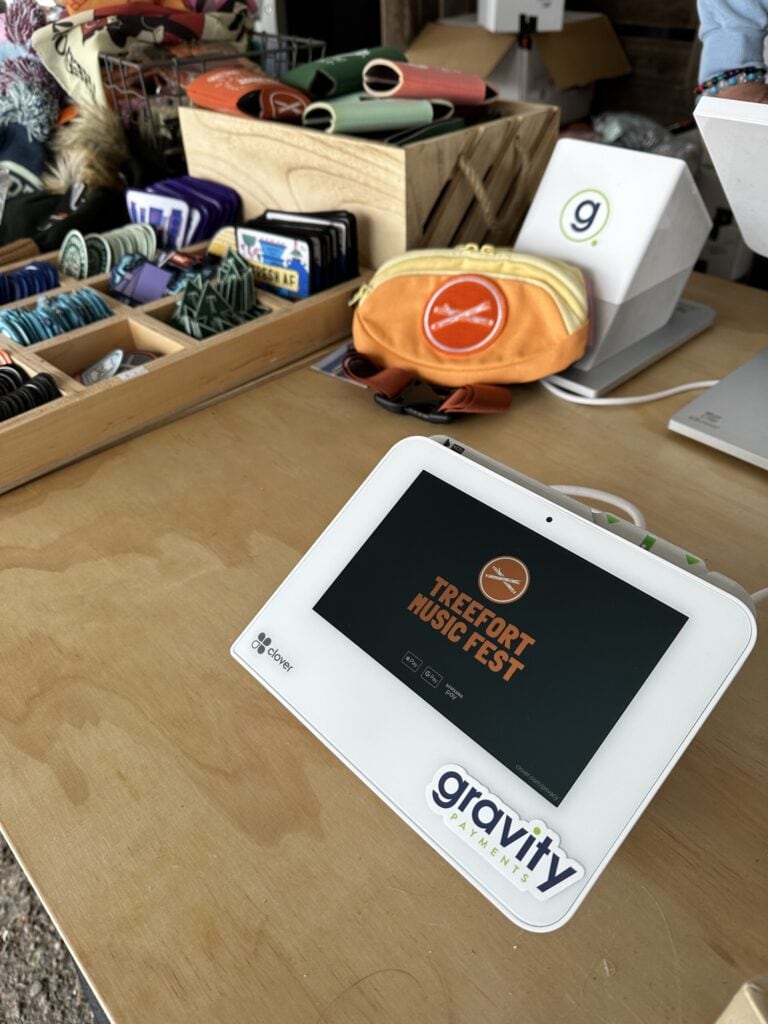
As any newly-minted college graduate entering the workforce for the first time soon learns, you can’t really know what you’re supposed to do with your life until you actually get a job.
At least, this was what Ylan Muller discovered when she first started working at Gravity Payments in 2013. Having graduated with a degree in psychology from the University of Washington in 2012, she’d spent the previous year working at a small online retailer that offered zero growth potential before deciding to make a change. She’d studied psychology with the intention of going into therapy, but eventually decided that human resources might be a better fit. She figured she could still use her knowledge of human behavior while also being able to have an impact on a larger organization. She started searching for HR jobs, and Gravity was the first place that offered her an interview…and an offer. “On my very first day, I remember going to orientation and they stuck me in a filing closet and had me start alphabetizing files,” she says.
Fortunately, she didn’t stay stuck in the closet for long. “Overtime I started becoming more immersed in the HR part of the job. I had no HR experience, so they were gradually training me on how to collect employee feedback and act on it, learn about employment laws, administer benefits, things like that.”
Get the Gravity newsletter for the latest FAQs, tools, tips and tricks
Despite her growing responsibility, however, Ylan soon realized that she was not a natural-born HR pro. “I felt really reactive, and I wasn’t sure what to do in most situations,” she says. “And it didn’t feel like a good fit because I didn’t have the right background or interest in the work itself to be able to bring fresh new ideas to the table. I was doing everything by the book because I was learning it from the book. So I could fill out forms all day, but I couldn’t figure out how to make that process better for the team. Gravity is not the type of company where you can just hit the status quo and that’s as far as you’re expected to go. The expectation is to go much higher.”
Noticing Ylan’s hesitancy, Ylan’s supervisor, Cary Chin, took her aside about nine months after she started at the company and suggested a change. Cary recognized that Ylan was great at administrative tasks and getting things done efficiently and that she was good at looking at things from a technical perspective, but she also knew HR needed someone with a big-picture outlook. Looking around the company to see where Ylan might be better able to use her skills, Cary considered the IT department. At the time, Gravity’s IT department consisted of exactly one person who was struggling to keep up with the growing demands of the company all by himself. Why not have Ylan fill a need by transitioning to IT?
It wasn’t the most obvious career move for a psychology major who’d been trying to launch a career in HR, but Cary knew that Ylan had worked for an IT helpdesk while in college and had knowledge and experience with computer troubleshooting. Although Ylan hadn’t considered the move herself, she knew that her interests and skills aligned well with what the IT department needed. “I was excited about the transition because I really liked the company, its goals, and its mission within the community, but I knew HR wasn’t for me,” she says. “Unfortunately I didn’t have the presence of mind to realize that I should go into IT. I’ve always been very by the book and focused on the roles I’ve been put into, so I was trying my best to make something of HR. The bigger needs of the company hadn’t occurred to me at the time and so I was excited about the transition, but I was also a bit apprehensive because I was jumping into something that I hadn’t touched in a year and a half.” Having her boss’s confidence helped bolster her own. “It was a good feeling to know that Cary believed I could do something different at the company. I was just unsure if I could live up to it.”
At first, Ylan started working part-time in IT while spending the rest of her time in office administration, ordering supplies and managing various in-house tasks that needed doing. But over time, as she took on more of a full-time IT role, she and her IT colleague took advantage of the department’s new bandwidth to start expanding its function and making it into more of a presence at the company. They started by doing relatively simple things like setting up a department phone number and communicating with the company through a department email address. The goal was to make the department less reactive and more proactive–less “have you tried turning it off and on again?” and more “how can we prevent your computer from breaking in the first place?”
Since then, Ylan has helped automate various technology processes at the company to make them more efficient: helping to set up VPN so people can share information between companies quickly, programming a server so she can set up new devices remotely instead of having to do so manually and in-person, scripting the on-boarding process so new hires have everything they need on day one, and the like.
Now that she’s been in the role for over three years, Ylan can say that she feels much more at home than she did previously. “I’m a lot more confident in this role,” she says. “I think for me it’s a lot easier to speak to technology where it’s very static and concrete. There are only a handful of viable ways to do something, versus HR where it’s more nebulous and you have to consider the human element. I feel more confident in the IT role because I enjoy interacting with systems and understand them better. It’s been exciting for me to go from a role where I felt disengaged and bored to one where it feels like I’m getting up to serve a certain purpose in the company every day and getting to learn new things.”
Despite her increasing comfort in the role, Ylan hasn’t let herself get too comfortable. “I don’t feel bored ever. No two days are the same. There’s always something to do and something to learn. I can spend all day reading articles about something and still not know everything about it. It’s exciting to me that there’s so much more out there to dive into.”
Looking back on her first few rocky months at Gravity, she is grateful she had a manager who was able to see past her weaknesses and look for ways she could add real value to the company. At the same time, she can see how she might have identified IT as a possible career for herself, and she has some words of wisdom for those unsure about where they are in their careers. “Do some digging and figure out what part of your role you actually like and see if there’s a need in the company for someone with those skills. Where else can you serve the company with those skills if you’re not in the position that fits you?”
For those starting a new role, she advises them that “feeling apprehensive is completely natural. No one’s perfect, and it’s okay to make mistakes, especially at Gravity where it’s okay to make mistakes as long as you’re trying something new with good intentions for improving the business. I learned most of what I know on the job. You have to build up your own confidence.” And for those looking for a new job or a career shift, Gravity might be the place for you. “We have a lot of positions that can be the start of something bigger, and we’re very open to career growth. We don’t just stick someone in a box and have them stay there. You’re a person first and an employee of this company second.”
By Brooke Carey, Content Editor
Interested in joining our team? Check out our Careers page for the latest opportunities.



